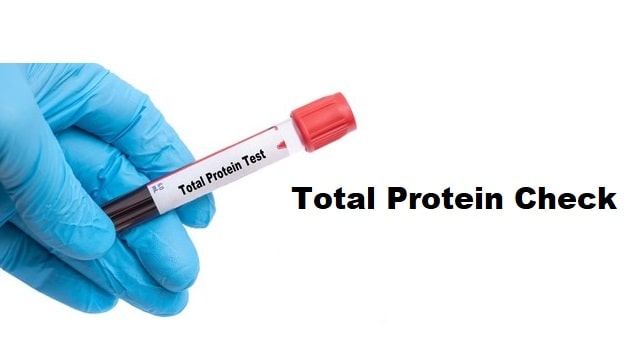Total Protein Check
The total protein test is done to measure the total amount of two types of protein in the body, namely albumin and globulin. This examination should be part of routine health because protein is an important supporting component of all cells and tissues.
Protein is needed for growth, development, and health of the body. Blood in the body contains albumin and globulin. Albumin protein keeps fluid from leaking out of the blood vessels, while globulin protein plays an important role in the immune system.
Why Do a Total Protein Test?
A total protein check is done to be completed as part of a routine health check. It is one of the tests that determine a person’s comprehensive metabolic panel (CMP) to obtain information regarding the status of the kidneys, liver, electrolytes, acid/base balance, and blood sugar including protein in the blood. This test can be requested if you experience the following conditions:
- Unexplained weight loss.
- Fatigue.
- Edema, which is swelling caused by extra fluid in the tissues.
- Symptoms of kidney or liver disease.
In short, a total protein test measures the total amount of protein in the blood and specifically looks for the amount of albumin and globulin. The test will also look at the ratio of albumin to globulin in the blood. This is known as the “A/G ratio.”
When Should You Do a Total Protein Check?
A total protein check is usually done as part of a comprehensive metabolic panel (CMP). Later, the results of a routine protein check can be used as a consideration for diagnosing various diseases that can affect protein levels.
People who have medical conditions that affect the digestive tract, liver, or kidneys are advised to take a total protein test to monitor their health recovery during treatment.
Loss of appetite, difficulty urinating, nausea or vomiting, and symptoms of malnutrition are signs that someone needs a total protein check.
How is a Total Protein Test Performed?
A total protein test is performed using a blood sample that is analyzed in a laboratory. To obtain a blood sample, a healthcare provider will draw blood from a vein in the arm or the back of the hand.
First, the medical professional will clean the area where the blood will be drawn with an antiseptic wipe. Then, they will bandage the arm to apply pressure to the area and gently insert the needle into the vein.
Blood will be collected into a tube attached to a needle. Once the tube is full, the stones in the arm will be removed as will the needle. There is no special preparation needed when doing this total protein check.
If necessary, the doctor will tell you if you should avoid food or drink before running a protein test. Some medications can affect the results of a total protein test. Here are the types of medications:
- Steroids.
- Androgens.
- Corticosteroids.
- Dextran.
- Growth hormone.
- Insulin.
- Phenazopyridine.
- Progesterone.
- Ammonium ion.
- Estrogen.
- Birth control pills.
Meanwhile, total protein checks performed on infants or young children will use a lancet needle. Lancet itself is a fine, sharp-tipped needle used to injure the skin in order to take a blood sample from the fingertip. This needle is used only once, so if it has been used it must be disposed of properly.
Where to Check Total Protein?
Total protein tests can be done at a hospital or at a laboratory recommended by a health professional. Each lab has a slightly different range of what is considered normal. Therefore, to diagnose the final result, your doctor will consider your medical history to determine the appropriate number.
If the results show low total protein levels, it means you have liver or kidney problems or it could be a digestive disorder, such as celiac disease (when the body cannot absorb protein as it should).
If the results show that the protein levels are too high, it can be a symptom of chronic infection or inflammation (such as HIV/AIDS or hepatitis virus). In addition, it can also be an early sign of bone marrow disorders.
Are there any risks from checking total protein?
The risks that can arise from a total protein test are very rare. Even so, you may feel moderate pain or discomfort from the test. In addition, someone who undergoes a total protein test is also at risk of experiencing several conditions such as:
- Excessive bleeding.
- Feeling dizzy or faint.
- Hematoma occurs due to the accumulation of blood under the skin.
- Risk of infection whenever skin damage occurs.
Things to Prepare Before Checking Total Protein
There is actually no special preparation before a total protein test is performed. Your doctor may tell you whether you should avoid certain foods or drinks before undergoing the test. However, as previously discussed, keep in mind that many drugs can affect the results of a total protein test. Starting from steroids, androgens, corticosteroids, and dextran, to birth control pills.

